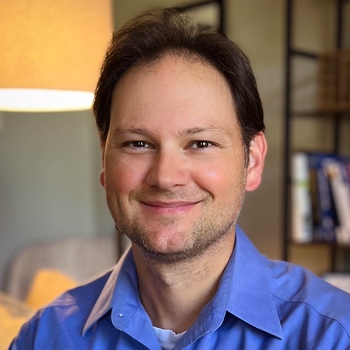Trauma is personal...
I like to define trauma as "a natural response to an event that has overwhelmed a person's capacity to cope". An individual's capacity varies considerably, making the nature of trauma very personal and often hard to spot. Fortunately though, the underlying mechanism of the condition is fairly universal, which makes it identifiable and thus treatable. It's clear that a war veteran, a 4th grade student, and career politician have very different hardships in their lives, but the experience of a traumatic event remains the same for all of them - their respective abilities to cope have been overwhelmed.
It's important to understand that there is no qualifier as to what constitutes a "traumatic event", and that most people experience multiple such events in their early lifetime. What these events have in common however is how they impact our nervous system, often creating that hiccup in the automatic fight/flight response that becomes more noticeable as time marches on. There is no "correct" way to respond in these moments, as we are just surviving as best we can, but it is this hiccup that can lead to anxiety, depression, or even symptoms of PTSD if left untreated.
Healing requires time, patience, and often professional care. I will provide you a safe space to talk about your experience, to learn to enhance your ability to cope, and to undertstand your own emotions in the context of your own personal experiences. Many times just talking aloud is a great starting point and can itself lead to tremendous relief. Together we will create therapy goals that will help you to being retaking control in your life.
WHO I AM...
My professional life began with the award of a Bachelor of Architecture in 2005. While pursuing this initial career path, I became aware of my own life-struggles, ultimately driving me to seek solutions in therapy. As I worked to reclaim my own life, I also learned a great deal about the process of helping others, so much so that I eventually decided to begin making a career change. I received a Masters of Education in Professional Counseling in 2018 but continued to work in the field of architecture until moving to Tyler a few years later.
My style of counseling comes from the humanistic and psychodynamic models of therapy, meaning that I focus on the individual nature of you as a human being and how unconscious processes created in your past impact your current daily functioning. In our sessions, I will work largely on helping you to understand your own personal experiences (past and present) and how they cause you to feel. Occasionally I will implement more thought and/or behavioral-focused interventions, but with the purpose of targeting the underlying emotions. My style is informed by academic knowledge as well as by my own experience, both in life and within the counseling field.
Should you feel that we are a good fit, I will work to help you to gain more understanding about the areas of your life that you choose to focus on. I realize that it takes great courage to seek counseling, and I commend you on taking this first step. Please let me know if you think that I can be of any assistance; I truly believe in the work and would be honored to help you in your healing journey.

Austin Z. Knox, M.Ed., LPC-Associate
Supervised by Brandi M. Sawyer, PhD, LPC-S, NCC